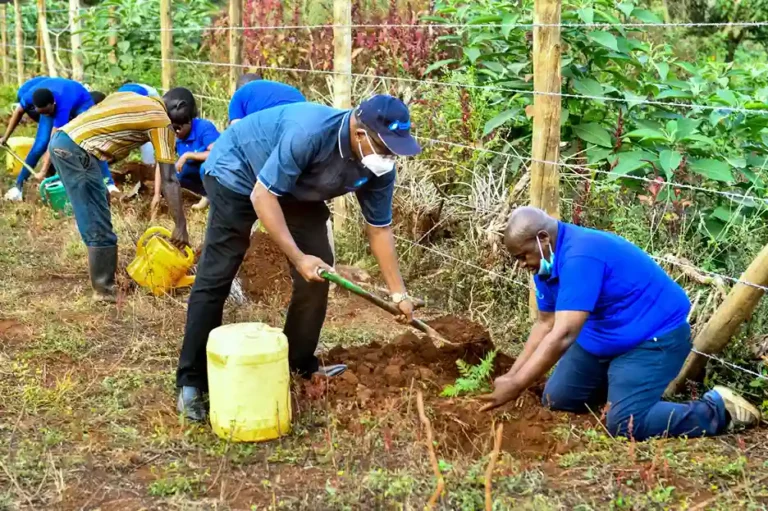Kenya is poised to become a carbon trading leader in Africa and beyond, following a record-breaking sale of carbon credits at the Nairobi Auction on June 14th, 2023.
The country sold over 2.2 million tonnes of carbon credits to prominent Saudi Arabian firms, including Saudi Airlines, Saudi Electric, Dubai Islamic Bank, and Saudi Aramco, the second-largest firm globally.
How are They Traded?
Carbon credits are certificates that represent the reduction of one tonne of greenhouse gas emissions.
They can be traded in compliance markets, where countries and companies are required to meet certain emission targets, or in voluntary markets, where buyers purchase carbon credits for environmental or social reasons.
The sale was a significant milestone for Kenya, which already has the largest carbon credit market share in Africa at over 24%.
It also demonstrated Kenya’s potential to attract interest from major international players and influence the global carbon trading landscape.
Regulations for Carbon Credits Market in Kenya
The Capital Markets Authority (CMA), the regulator of the securities industry in Kenya, is in the process of setting up regulations and guidelines that will lead to the creation and regulation of a carbon credits market in Kenya.
The CMA plans to do a carbon assessment across the country to map all the stakeholders, their roles and how they can converge to make Kenya a carbon trading powerhouse.
Luke Ombara, CMA Director of Policy and Market Development, said that after Kenya undertakes an initial assessment and determination of the actual demand and supply of carbon credits, this will inform the policy approach.
He said that Kenya has the option of either setting up voluntary markets or joining compliance markets such as the Paris Agreement or the African Continental Free Trade Area (AfCFTA).
Mr Ombara added that Kenya has a competitive advantage in carbon trading due to its abundant natural resources, such as forests, wetlands and renewable energy sources, that can generate carbon credits.
He also said that Kenya has a vibrant private sector and civil society that are actively involved in climate action and sustainable development initiatives.
Mr Ombara urged stakeholders to embrace carbon trading as an opportunity to diversify their income streams, enhance their environmental and social impact, and contribute to the global fight against climate change.
He also called for more awareness and education on carbon trading among the public and private sectors, as well as the general public.
Today, Our CEO released the Capital Markets Soundness Report (CMSR) for the period April-June with a special feature themed ‘The Road to Establishing Carbon Markets in Kenya'. pic.twitter.com/1xZ9F0gbur
— Capital Markets Authority Kenya (@CMAKenya) July 27, 2023
The CMA is working closely with other relevant authorities, such as the National Treasury, the Ministry of Environment and Forestry, the National Environment Management Authority (NEMA), and the Climate Change Directorate (CCD), to develop a robust and inclusive framework for carbon trading in Kenya.
The CMA is also engaging with regional and international partners, such as the African Development Bank (AfDB), the World Bank, and the United Nations Framework Convention on Climate Change (UNFCCC), to learn from best practices and leverage existing platforms and networks.
“CMA will in the 2023/2024 financial year engage the various player in this market in undertaking a detailed carbon market assessment- a deep dive into carbon markets in Kenya to assess the complete carbon market ecosystem, stakeholder mapping, demand, supply, and trajectory for growth,” CMA says in its Capital Markets Soundness Report-Volume-XXVII-Quarter-2-2023.
“This will subsequently inform the policy framework for providing oversight over sound and well-functioning voluntary and compliance carbon markets that will scale up these markets to achieve their environmental objectives.”
In addition, the Nairobi Securities Exchange (NSE) wants to create a carbon credits exchange.
The NSE signed an agreement with the AirCarbon Exchange Group in 2022.
This agreement was part of the NSE’s efforts to set up the exchange. The NSE announced the agreement when it launched the NIFC.




